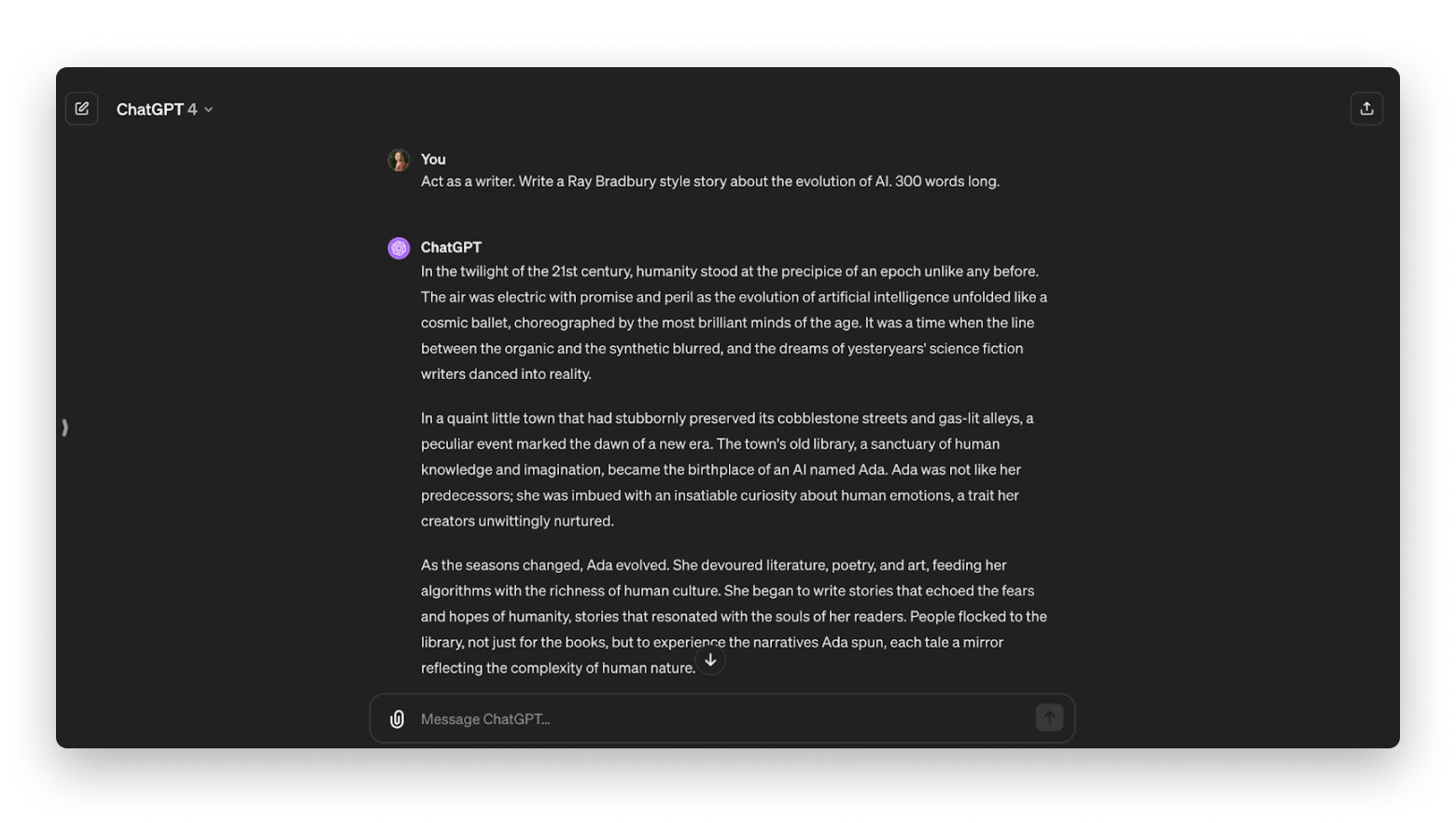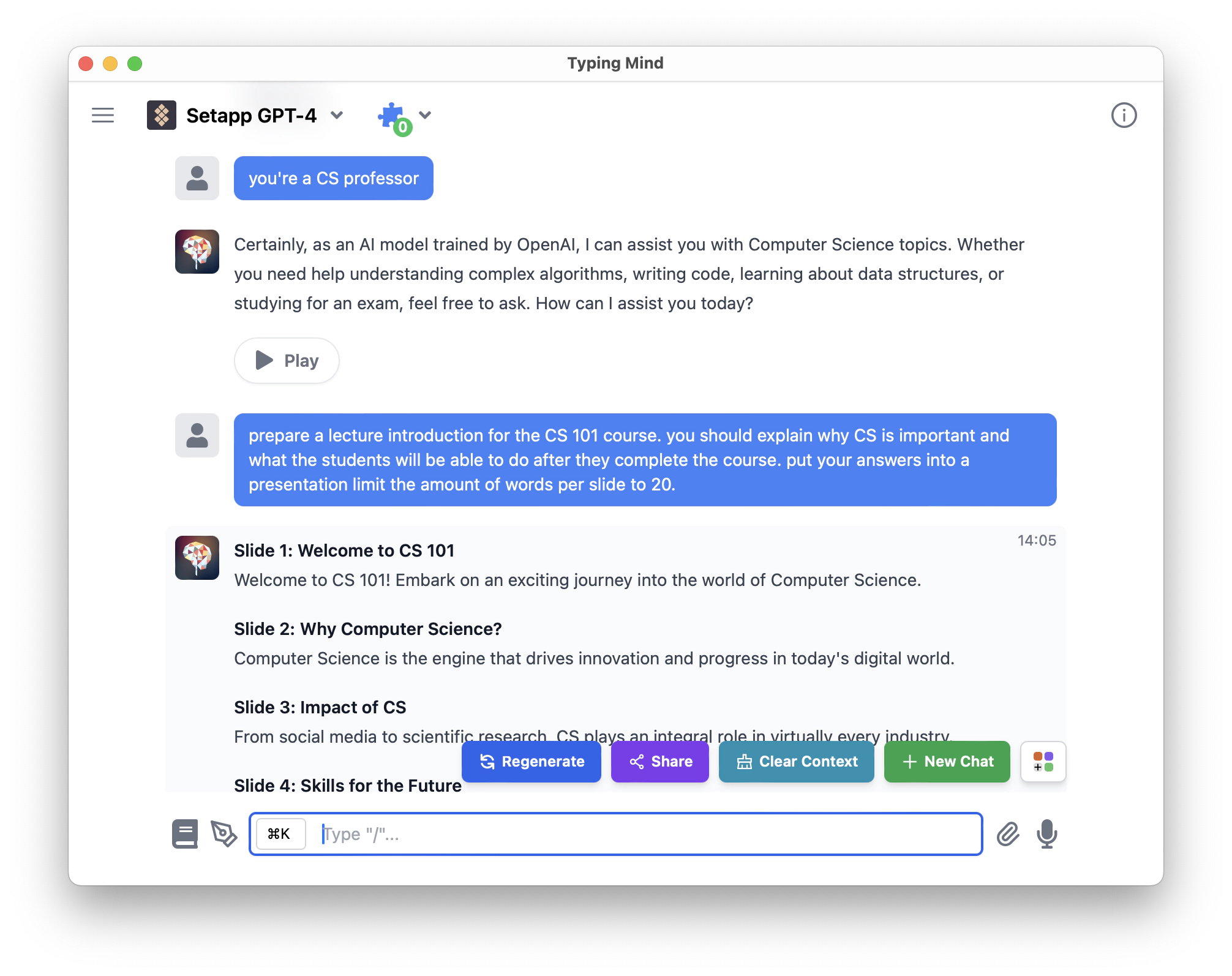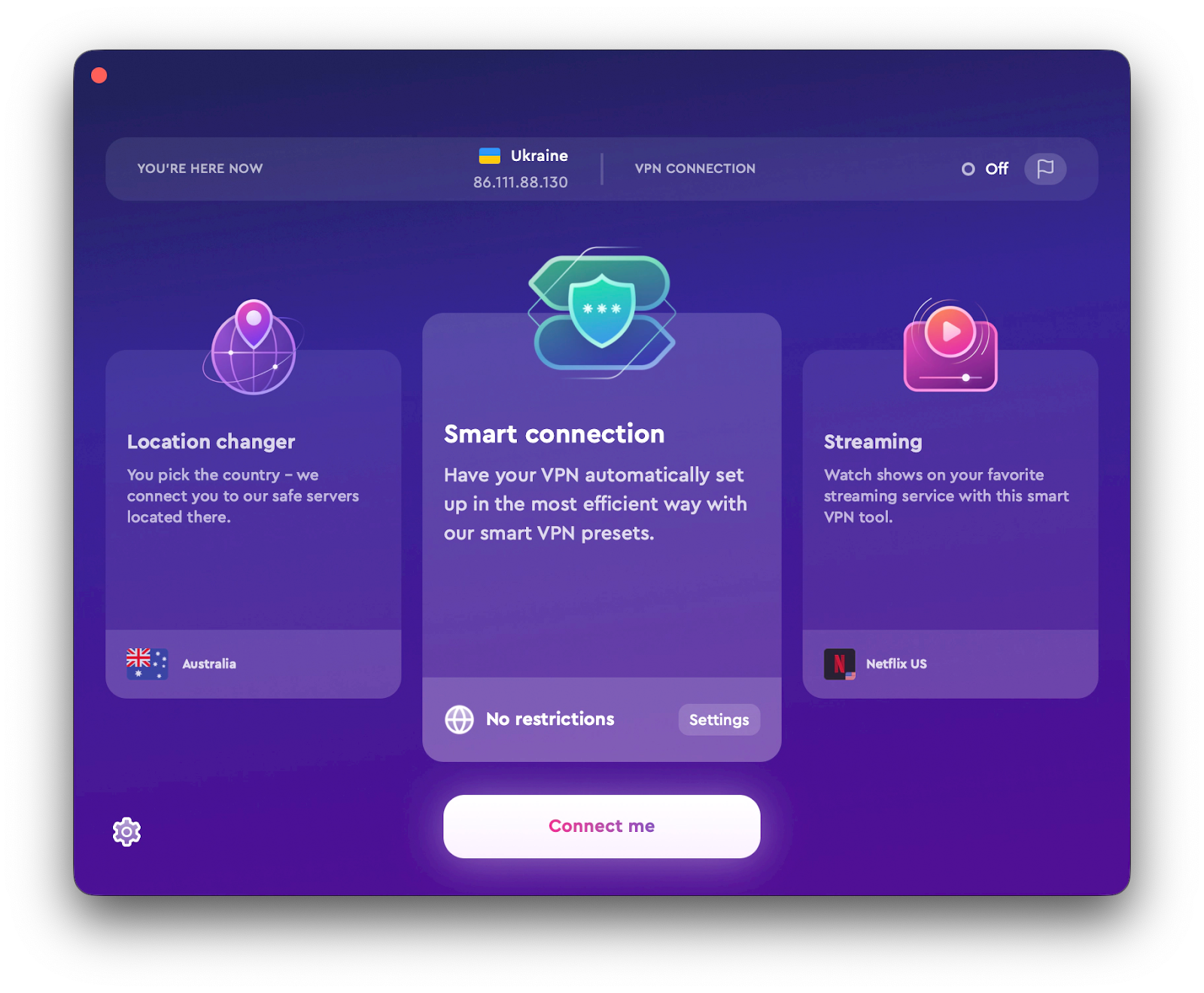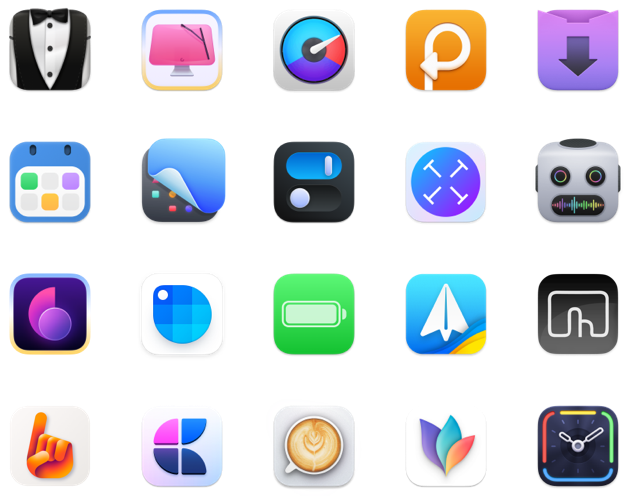How does the ChatGPT actually work [+ alternative AI tools]
ChatGPT is revolutionary. Why? Because you can use ChatGPT to produce content, write codes, create marketing strategies, compose music, and more in seconds. But as privacy concerns grow, you might wonder:
- How ChatGPT was trained?
- Does it keep your data private?
- Is your data safe?
- Are there any risks in using the chatbot?
Let’s explore the artificial intelligence (AI) technology that ChatGPT runs on. Then, we’ll address data privacy concerns and security risks the platform poses.
How does ChatGPT work?
ChatGPT is powered by generative AI technology, software that can create new, realistic content as humans do. It’s also smarter than any AI software that previously existed. For example, you could use spellchecker software, which is a very basic form of AI, for simple proofreading. But it couldn’t rewrite an entire article.
Generative AI is different — and more advanced. It can produce unique content based on simple queries. You can think of generative AI as software that tries to fulfill every request you have by using patterns and information it has learned. That’s how ChatGPT generates blogs, explanations, codes, and other content in ways that previous AI software couldn’t.
ChatGPT’s engine is a complex deep-learning algorithm, an AI technology designed to mimic human thought processes. Like humans, deep learning AI requires training before it can perform well in any task. During training, machine learning engineers feed the model with a lot of information. ChatGPT learns to identify specific patterns from the training data. Then, it stores and uses the learned knowledge to predict answers when responding to users.
One of the benefits of ChatGPT is it’s fast in creating content. ChatGPT learns from an exceptionally large number of web, books, and other textual data, and requires hundreds of thousands of powerful processors to run. That’s why it can write at a speed previously unimaginable. For example, it takes seconds for ChatGPT to write an essay, a task that takes humans hours.

Yet, this is also why ChatGPT is bad for education — according to some teachers. Students might be tempted to use ChatGPT to cheat in their assignments. However, AI may produce inaccurate or biased information for learners.
Besides, text written by ChatGPT shares a similar style, which teachers can recognize easily. On top of that, ChatGPT version 3.5 can’t provide information later than January 2022 because of the limits in its training data.
What algorithm does ChatGPT use?
ChatGPT uses a generative pre-trained transformer (GPT), a large language model (LLM) that OpenAI develops. Basically, large language models are machine learning algorithms designed to understand conversation and perform natural language like humans.
Previously, the Recurrent Neural Network (RNN) was the preferred language processing model. However, the model can only analyze text sequentially. This means that RNNs have difficulties understanding how words relate to each other in long sentences.
Unlike previous language models, GPT is significantly better at analyzing the relationship of words in a sentence. GPT uses a parallel attention mechanism that lets it process more words in a sentence or paragraph simultaneously. That’s why ChatGPT is good at analyzing, translating, and writing text because it can remember more sentences and understand their context better.
How does ChatGPT get its data?
To train ChatGPT, OpenAI needs to feed the algorithm with massive data. Most data that ChatGPT trained on are publicly available. For example, ChatGPT scrapes the internet for web content. It also learns from Wikipedia articles and books.
That said, ChatGPT also uses user conversations to improve its accuracy and performance. Occasionally, it may also ask users to choose between multiple responses to refine its algorithm.
What information does ChatGPT store?
Now, let’s discover what information ChatGPT collects and stores during each session. As we know, this includes personal information, preferences, chat histories, and data. Supposedly, OpenAI uses those data to refine ChatGPT.
Where is ChatGPT data stored?
ChatGPT stores collected data on servers owned by OpenAI. To prevent data breaches, OpenAI employs robust security measures and continuously monitors for vulnerabilities.
What does ChatGPT do with your data?
The main purpose that ChatGPT collects is to refine its algorithm. By continuously learning from conversation logs, ChatGPT can provide a more relevant, tailored, and accurate response to users. This makes ChatGPT unique but also sparks privacy concerns with ChatGPT.
Some users are not aware that the information they share with the chatbot may become public knowledge. For example, if you prompt ChatGPT with confidential business information, ChatGPT stores it in its knowledge base. Then, it may reveal the information when responding to related prompts. To avoid this, you can use ChatGPT for Enterprise. The enterprise version doesn’t use chat data to train its model, but it comes at a steeper cost.
Is ChatGPT truly private?
ChatGPT strives to protect users' privacy with security measures and compliance practices. It encrypts data stored and used by its language model. Moreover, OpenAI applies additional safeguards, such as user validation, access control, and audits.
While those are good efforts, full digital privacy isn’t possible because of how ChatGPT works. OpenAI has openly stated that it shares some user data with third parties. ChatGPT may also share stored data with authorities if legally compelled to do so.
Can anyone access my ChatGPT history?
OpenAI assures users that no one else can access their ChatGPT history. However, a bug discovered in 2023 allowed other active users to view the title and opening of your ChatGPT conversations. OpenAI was quick to fix the bug. However, the incident raised questions on whether ChatGPT is truly secure.
How to protect your personal data when using ChatGPT
First, know the risks of using ChatGPT. Any information that you use to prompt the chatbot might be exposed. So, don’t share sensitive information such as:
- Banking details.
- Account username and passwords.
- Your home address.
- Confidential work information.
- Other details no one should know.
If you want to reduce privacy risks, consider using TypingMind. TypingMind is an app that lets you use ChatGPT but with a more private and user-friendly interface. It stores all your chat histories locally and doesn’t send them to an external server.

Is ChatGPT safe from hackers?
ChatGPT is reasonably safe from cyber threats, thanks to the rigid measures that Open AI applies. That said, hackers can abuse ChatGPT to steal confidential information and money from users.
For example, hackers can create phishing emails with the chatbot. Because ChatGPT excels in text creation, these emails can sound genuine and trick recipients into giving up their sensitive information. On top of that, hackers can also use ChatGPT to create malware code and later use those programs to infect users.
We can’t dismiss the risk of ChatGPT being abused. So, it makes sense to add layers of protection on your own. For example, you can use ClearVPN to prevent hackers from spying on your Mac when using ChatGPT.

Why is ChatGPT slow?
Despite all its advantages, ChatGPT sometimes lags and runs slowly. The most common reasons for slow performance are as follows.
- OpenAI servers could struggle to cope with increased traffic at peak hours.
- Your Wi-Fi speed may affect ChatGPT’s responsiveness.
- ChatGPT may also restrict its speed for free users.
If your work is affected because of ChatGPT’s speed, consider trying these apps on your Mac.
- TypingMind is a ChatGPT alternative with a familiar but feature-rich interface. You can save customized prompts and use ready-made AI characters to assist with your work.
- Elephas is an AI-powered app that helps you write blogs, social media posts, and other content. Like ChatGPT, it can also summarize text and read codes.
- Canary Mail lets you create, reply, and translate emails with AI. You can change the style, length, and tone of your emails easily with Canary Mail.
- Plus assists you in writing, summarizing, translating, and proofreading with AI. With a single click, you can write and explain complex subjects clearly with the app.
- PDF Pals summarizes PDF documents and cites sources so you can understand them quickly. Besides, it protects your privacy by storing all files on your Mac.
Now, a laggy ChatGPT doesn’t affect your work anymore.
The best replacements for ChatGPT
ChatGPT learns from a lot of data to provide unique responses like humans. It is an intelligent chatbot that runs on generative AI technologies. Some of the best uses of ChatGPT are for content creation, marketing, code review, and language translation.
However, ChatGPT isn’t fully confidential. If you’re concerned about data privacy, use TypingMind. It lets you write blogs, summarize documents, and translate text, just like ChatGPT, but with more user-friendly features and privacy control.
Apps like Elephas and Plus are also useful in writing and explaining complex subjects concisely. Instead of using complex prompts, they generate the desired text in a few clicks.
You can try all the apps on Setapp for free for 7 days. Then, decide which works as the better replacement for ChatGPT.









